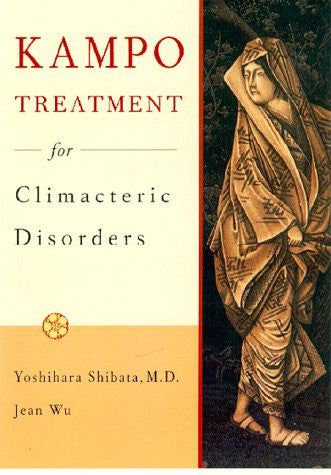-
Kampo Treatment for Climacteric Disorders: A Handbook for Practitioners (Paradigm title)
Foreign Languages Press / Redwing (FLP)
-
$14.99
-
is back-ordered. We will ship it separately in 10 to 15 days.
-
-
Description
"All I have are compliments....the prose is wonderful - clear, precise. The point-of-view is admirable, informed and balanced." -- Charles Leslie, Harvard Medical School "I found the book to be very interesting and thorough in its discussion of Kampo medicine for the treatment of menopause-related conditions. I would recommend the book to complementary physicians who are interested in Oriental medicine as well as interested laypeople." -- Dr. Susan Lark "It is refreshing...to see such an accomplished analysis of Kampo. The authors take great pains to explain their subject in terms that are comprehensible to Western medical practitioners. This is a great book for anyone interested in exploring the rich tradition of Japanese herbal medicine, especially for those Western medical doctors who wish to expand their therapeutic techniques." -- North American Journal of Oriental Medicine "[Dr. Shibata] was without a doubt one of the great masters of modern times. The theoretical structure of kampo does not yield easily to didactic instruction, and Jean Wu has done a superb job of making it clear to the practitioner or student of Oriental medicine. Hopefully, future work in the explication of kampo will adhere to similar standards of precision and clarity." -- Daniel C. Kenner, L.Ac. For those of us who knew Dr. Shibata, we are grateful to have anything of his vast knowledge of botanical medicine recorded. He was without doubt one of the great masters of modern times. The theoretical structure of Kampo does not yield easily to didactic instruction, and Jean Wu has done a superb job of making it clear to the practitioner or student of oriental medicine. Everything in the book is of practical value. Everything that requires explanation is well explained. Her language is concise and also readily accessible to the conventionally-trained health care practitioner. The importance of Kampo as a method of east Asian clinical phytotherapy has not yet been fully appreciated. I believe that as more oriental practitioners gain clinical experience, appreciation of this treasure chest of insight from many generations of Japanese clinical masters will grow. This book is a good example of how it should be presented. Hopefully, future work in the explication of Kampo will adhere to similar standards of precision and clarity. -- Anonymous reader Kampo is more than a traditional medicine imported from China. It has fully-integrated with the Japanese health-care system and has continually accommodated the needs of the Japanese people. In Japan the scientific revolutions of the 17th and 18th centuries encouraged a flood of Western medicines and information. Thus Japanese traditional medicine consistently adapted to the same trends that molded medicine in the West. Although Japan has a highly sophisticated pharmaceutical industry, and no economic need for traditional medicines, Kampo's role in Japan has nonetheless increased. Since the development extract preparations in the 1950's and insurance payments in the 1970's, popular demand has led Japanese physicians to research effective Kampo treatments for chronic degenerative conditions, as well as the comorbidity that attends an aging population. Japanese experience with the integration of traditional medicine can be eminently instructive for the West and conditions associated with the menopause are among those most commonly treated. Kampo's concern with individual variations is specially pertinent because of the variation of symptoms among patients. Thus, many gynecologists in Japan consider Kampo as either substitute or addition to a conventional treatment. Among the 70% of Japanese gynecologists who utilize Kampo, 90% prescribe it for their climacteric patients. This book was born out of the desire to introduce to the West an effective therapy with few side effects that is suitable for the long term administration often association with menopause-related d

